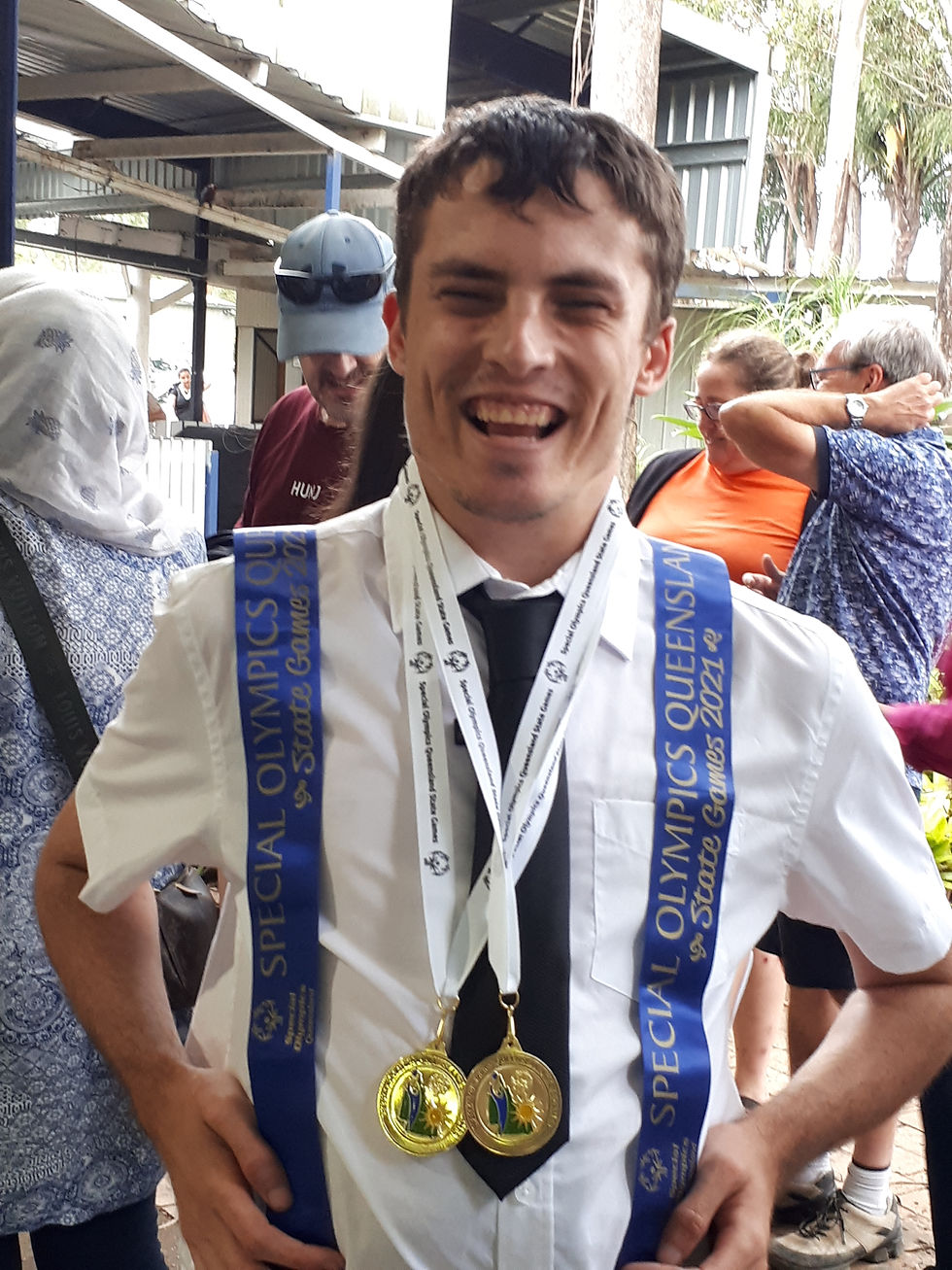Inspiring group of riders finding their place in the sun
- Fran Cleland

- Jul 19, 2023
- 3 min read
Updated: Jul 22, 2023

IT’S been a long road for people with disabilities to gain recognition as riders.
At the turn of this century, England recognised riding for the disabled as a beneficial form of therapy and offered riding therapy for wounded soldiers at the Oxford Hospital during WWI.
By the 1950s, British physiotherapists were exploring the possibilities of riding as therapy for all types of handicaps.
When Lis Hartel of Denmark won the silver medal for Grand Prix Dressage at the 1952 Helsinki Olympic Games despite her paralysis from polio, medical and equine professionals began to take notice and centres for therapeutic riding began forming in Europe.
But it was not until the 1996 Summer Olympics that para-equestrian dressage was added to the Paralympic Games and 2006 when the FEI brought para-equestrian sport under its umbrella.
Now, para competitions are a part of almost every senior dressage competition world-wide and there is a strong focus on the riders and horses.
The intellectually disabled have only now begun to take their place in the competition arena and recent success in two overseas competitions have suddenly brought these riders into view.
When dressage riders Andrew Driffield, Sarah Sherwood and Sui Watts won the team gold medal at the Virtus Global Games in France, Australia could not have been more proud.
The Virtus Games has a focus on dressage but the Special Olympics has a wider base of sports.
Special Olympics Equestrian encompasses several disciplines. Riders may choose either English or Western tack, and enter the appropriate classes.

At the present time, dressage is the only Special Olympics event that is based on FEI rules. Other events have been chosen to offer a wide range of activities that athletes can participate in successfully. Equitation is judged on the rider’s position and ability to influence the horse, and is the basis for determining divisions.
Robyn Ancell, mother of intellectually disabled Northern Territory rider Luke Purtill, is delighted that things are moving forward.
“It is so exciting to see that intellectual disability is finally gaining some traction,” she said.
“We have started the process for Luke to be internationally accredited with Virtus – which is expensive, difficult and time consuming – and will be attending our first Equestrian Australia Equine Pathways weekend at the end of September. It’s so exciting.”
A group that has been working hard for intellectually handicapped riders and is being recognised for its efforts despite the fact it receives no government assistance is the Star Club Equestrian Program in NSW.
The idea was born in 2018 after a gap was identified in equestrian sport for those with an intellectual disability and autism, including impairment from acquired brain injuries, anxiety, attention deficit disorder and cognitive/behavioural difficulties.
In 2019, the Star Club Equestrian Program became an incorporated sssociation in NSW and the inaugural committee was formed. It affiliated with Equestrian NSW, became an Active Kids Provider and moved from the small riding school it had been operating from at Nulkaba to Emerald Park Equine at Mandalong.

That year, the first official Star Club Equestrian Program team also attended a Riding For Disabled Gymkana and Dressage Championships under the Star Club Equestrian Club banner.
As interest in the program has grown, so have the skills of the riders (or "star clubbers").
Ages range from five to 54 years of age and they travel from the Greater Hunter, Central Coast, Sydney and even the Mid North Coast to participate in monthly “star days”.
“There are approximately 80 star clubbers on our mailing list, with 25-30 of those regularly attending star days,” program founder Sharon Bassett says.
“Some are beginners, some are experienced competitors, but they all have one thing in common – they love coming to Star Club.”
In recognition of all this work, the Star Club Equestrian Program was recently named Business of the Year in the Excellence in Diversity and Inclusion category of the 2023 Singleton Business Awards.
Equestrian Australia coach and coach educator Sue Chandler described the star club as a “super initiative”.
“I have some experience in this area and the benefits definitely go both ways,” she said.
“Small, ongoing achievements can be life changing in the long-term. I congratulate the Star Club Equestrian Program on their work and wish them every success for the future.”
Stories on The Regional’s website are free to read and always will be.
If you enjoyed this article you can show your support by joining our mailing list (either by filling out the form below or sending us a message).
We'd also get very excited if you put a "like" on our Facebook page.




Comments